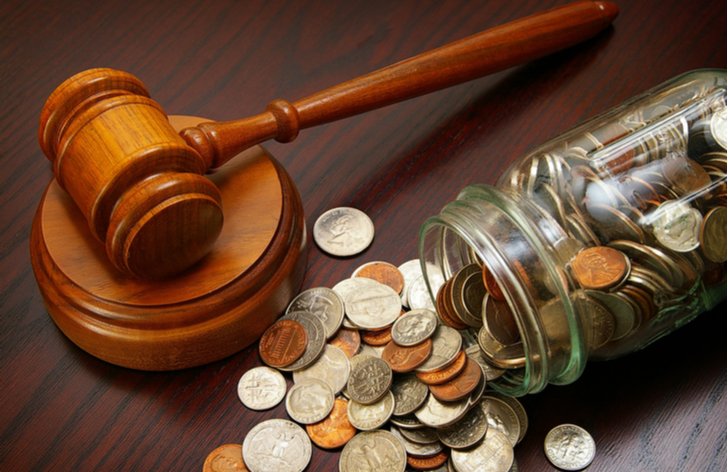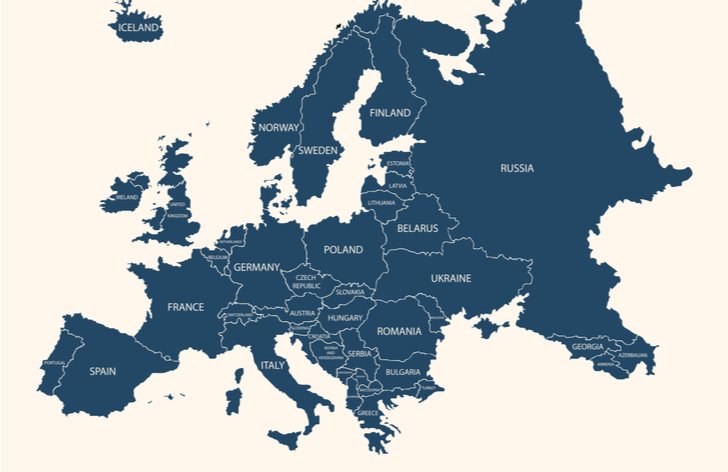* Dollar/yen rises as high as Y94.78 on EBS, then eases
* Traders take profits from dollar gains
* Traders eye reopening of NY stock market, Fed board meeting
By Satomi Noguchi
TOKYO, April 5 (Reuters) - The dollar eased against the yen
on Monday with traders pocketing profits after the greenback
vaulted to its highest in more than seven months earlier in the
day.
In holiday-thinned early Asian trade, the dollar rose to near
the 95 yen mark, adding to a 2.8 percent climb last week, after
generally upbeat jobs data indicated the U.S. economic recovery
is on a solid footing.
But traders said speculators trimmed yen shorts after having
turned their positions against the yen aggressively, providing a
floor for the Japanese currency which had earlier hit a nine-week
low against sterling and an 18-month trough versus the Australian
dollar.
Still, overall trading remained subdued with markets in
Australia, New Zealand and China closed for holidays.
"After breaking decisively above the January high of 93.78
yen and other strong chart resistance, technically dollar/yen is
clearly in a bullish trend," said Minoru Shioiri, chief manager
of foreign exchange trading at Mitsubishi UFJ Securities.
"But for many players the dollar looks too high to bet more
on the currency, unless you are a medium-term trader expecting it
to rise to 100 yen," he said.
The dollar earlier rose as high as 94.78 yen on trading
platform EBS, the highest since late August 2009, before easing
to 94.38 yen, down about 0.2 percent from midday trading in New
York on Friday.
Analysts said the dollar is likely to find new resistance
around 95.10 yen -- a 61.8 percent retracement of its fall from a
high in April 2009 of 101.45 to a 14-year low of 84.82 yen hit in
late November.
Traders said rises in long-term Treasury yields after the
jobs report, with the benchmark 10-year yield <US10YT=RR>
climbing to a nearly 10-month high just below 4 percent, also
boosted the dollar's yield appeal compared with the low-yielding
yen.[]
A solid rise in private-sector hiring in the jobs report has
led traders to believe the Federal Reserve may raise the discount
rate again on Monday when it holds a meeting, providing support
to the dollar. []
Many analysts downplayed the significance of the upcoming Fed
board meeting since it is held every other Monday and is not the
closely watched Federal Open Market Committee (FOMC) meeting. But
it stirred chatter of another increase in the discount rate, or
the emergency rate at which it lends to banks.
On Feb. 18, the Fed surprised the market when it hiked the
discount rate by a quarter point to 0.75 percent.
Markets in the UK and many euro zone countries are also on
holiday.
The U.S. stock market will reopen after closing on Friday for
the Good Friday holiday.
"The dollar looks already high enough against the yen to take
profits," said a senior trader at a Japanese bank.
"But the currency's strength since Friday without a major
corrective move down suggests that it may stay on a firm footing
at least until the market sees the result of the Fed meeting
today," the trader said.
The dollar index, a gauge of the greenback's performance
against six other major currencies, stood at 81.133 <.DXY>, off
Friday's high of 81.324 when it rose about 0.8 percent.
In the week to March 30, speculators increased their bets on
the dollar with the value of the dollar's net long position
totalling $12.28 billion, compared with a net long of $4.08
billion the week before, Commodity Futures Trading Commission
data showed on Friday. []
The euro was trading around $1.3499 <EUR=> from $1.3476 in
midday trading hours in U.S. on Friday when it fell about 0.7
percent.
The euro was at 127.54 yen <EURJPY=R> after it rose
as high as 127.93 yen earlier on EBS, around a 10-week high.
The Australian dollar advanced as far as around 87.10 yen,
according to Reuters data, the highest since late September 2008,
before retreating to 86.91 yen.
KEEPING EYE ON CHINESE YUAN
U.S. Treasury Secretary Timothy Geithner said on Saturday
that he was delaying an April 15 report on whether China
manipulates its currency, ahead of a visit by Chinese President
Hu Jintao to Washington for a nuclear security summit next week.
[]
Market players said they were watching how the yuan could be
affected.
"The U.S. decision not to point a finger at China should be
taken as Washington's way to prompt China to voluntarily raise
the value of the yuan," said Yasutoshi Nagai, chief economist at
Daiwa Securities Capital Markets.
"In fact, China may be looking for the right time to do so,
as boosting its currency would be a smooth solution to fixing
problems such as inflationary pressure," he said.
(Additional reporting by Rika Otsuka and Kaori Kaneko; Editing
by Chris Gallagher)
www.finance.czZprávy
FOREX-Dollar pauses after hitting 7-month high vs yen
Vstupní pracovnělékařské prohlídky již nejsou povinné pro všechny. Kdo se jim vyhne?
Od 1. června 2025 jsou v účinnosti nová pravidla pro pracovnělékařské vstupní prohlídky. Zaměstnanci zařazení do první kategorie již nemusí povinně…
Mladý může dostat víc než starší. Zajímavosti o výpočtu invalidního důchodu
V Česku jsou vypláceny invalidní důchody prvního, druhého a třetího stupně. Pro přiznání invalidního důchodu musí být splněny zákonné podmínky a…
Průměrný výdělek zaměstnance je věda. Jak se počítá a kdy který použít?
Od průměrného výdělku se odvíjí celá řada nároků zaměstnance vůči zaměstnavateli (např. náhrada mzdy za dovolenou) nebo vůči…
Nejen trvalé krácení. Co všechno ovlivní přiznání předčasného důchodu?
Při odchodu do předčasného důchodu je přiznaný měsíční důchod pochopitelně nižší, krácení závisí na termínu předčasnosti. To však není vše. Jaká…
Den otců je tu. Jaké výhody mohou získat tatínci, tátové a fotři?
Na neděli 15. června připadá Den otců. Není to v našich končinách zatím příliš slavený svátek, jeho popularita však pomalu stoupá. Viditelně…
Aplikace na podnikatelský odpad vydělá městům miliony. Živnostníci ji budou nenávidět
Živnostník neplatí, město tratí. Českým obcím unikají miliony kvůli tomu, že drobní podnikatelé často netuší, že mají zákonnou povinnost platit za…
Pouze každá desátá žena vydělává v Německu více než její partner. Proč?
Do rozpočtu německých domácností přispívají zpravidla více muži než ženy. Německo patří mezi členské země Evropské unie s nejvýraznějšími mzdovými…
Preferovaný potomek vs. opomíjený. Co rozhoduje o výši dědictví?
Pokud rodiče po majetkové a finanční stránce preferovali některé ze svých dětí a dávali mu hodnotné dary a poskytovali…
Kdy musejí penzisté platit daň z příjmu a proč se týká jen někoho
Většina starobních důchodců nemá žádné daňové starosti. Kdy však musí starobní důchodci platit daň z příjmu? Jak se vypočítává daň z příjmů z…
Máslo a vejce jsou dražší než v letech s dvoucifernou inflací, cukr už zlevnil
Stále vás překvapují některé ceny při nákupu běžných potravin? Není divu. Ačkoli dříve nevídané plošné zdražování z nedávných let snad ustalo,…
Poslanecká sněmovna zrychleně schválila snížení důchodů pohlavárům
Poslanecká sněmovna začátkem června hlasovala o novele zákona o organizaci a provádění sociálního zabezpečení, která má…
Na plné uznání zapomeňte. Jak se počítá evidence na Úřadu práce pro důchod?
Měsíční částku starobního důchodu ovlivňuje celý průběh pojištění. Čím vyšší rozhodné příjmy a čím vyšší získaná doba pojištění, tím je měsíční…
Samosběr třešní 2025: kde letos zaplatíte nejméně za kilogram?
Samosběry třešní jsou v plném proudu a pěstitelé napříč Českem otevírají své sady veřejnosti. Cena za kilo se letos pohybuje mezi 50 a…
Jaké příjmy musíte mít na průměrný důchod? A mohou na něj dosáhnout i předčasní důchodci?
Jaké příjmy musíte mít, abyste dosáhli na průměrný starobní důchod v roce 2025? A jaké příjmy musíte mít, abyste jako předčasní důchodci dosáhli na…
Poprali jste se a způsobili někomu zranění? Kdo musí platit zdravotní pojišťovně regresní náhrady
Zdravotní pojišťovny mají právo na úhradu nákladů spojených s čerpáním zdravotní péče, pokud dojde k jejich vynaložení v důsledku protiprávního…
Zvýšení příspěvku na péči neprošlo, ale naděje ještě nezhasla
To, zda se zvýší příspěvek na péči alespoň v prvních stupních závislosti, zatím není jasné. Je však jisté, že to nebude prostřednictvím…
Nárok na vyšší podporu v nezaměstnanosti přijde později. Rozdíl bude v tisících
Společně se změnami v zákoníku práce dojde i ke zvýšení podpory v nezaměstnanosti. O kolik a kdy se to stane?
Všichni platí státu stejně? Ale kdepak. Od jaké mzdy začíná zdanění práce klesat
Celkové zdanění práce zaměstnanců s velmi vysokou roční hrubou mzdou je v Česku nižší než zaměstnanců „pouze“ s nadprůměrnou mzdou. Jak je to…
Bez ukazování pasu v létě dojedete k dalším evropským mořím
V začínající letní turistické sezóně mohou lidé ze zemí Schengenského prostoru využít nové cestovatelské výhody. Díky novoročnímu plnému zapojení…
Vyšší životní minimum: více peněz i širší nárok na sociální dávky
S účinností od 1. 5. 2026 se zvýší některé částky životního minima, které ovlivní řadu sociálních dávek. Díky této změně se zvýší nejen některé…
Nejlépe s minimální mzdou vyžijí zaměstnanci v Lucembursku. Jak si stojí Češi?
Minimální mzda je legislativou zavedena nejenom ve většině členských zemí Evropské unie, ale i např. v USA, v Kanadě, v Japonsku, v Austrálii nebo…
Penzijní spoření pro děti vám daně nesníží, část peněz však lze vybrat
Doplňkové penzijní spoření pro děti můžete svému potomkovi sjednat v podstatě hned cestou z porodnice. Proti smlouvě uzavírané dospělým investorem…
Platit v cizině kartou je výhodnější, ale ne bez rizika. Na co dát pozor na dovolené?
Sezóna dovolených začala a s ní se vrací každoroční otázka: platit v zahraničí raději hotově, nebo kartou? Rizika i výhody přinášej obě možnosti.…
Může být ztráta důvěry důvodem pro rozvázání pracovního poměru?
Prokazatelná ztráta důvěry pomáhá zaměstnavateli ukončit pracovní poměr se zaměstnancem rychle jeho okamžitým zrušením než…
Líp už bylo? Deset důchodových změn k horšímu z posledních let
Podmínky pro výpočet řádného i předčasného důchodu se během posledních let změnily. Podívejme se na vybrané negativní změny, které zpřísňují…
Zaměstnanci v rizikových profesích si budou muset o příspěvek na předdůchod říct sami
Nová pravidla důchodového zabezpečení počítají s tím, že zaměstnavatelé začnou povinně přispívat zaměstnancům ve 3. rizikové…
O kolik vám zkrátí důchod každý další interval předčasnosti? Počítejte s námi
Při odchodu do předčasného důchodu je nutné počítat s trvalým krácením penze právě z důvodu dřívějšího odchodu. Krácení za přitom provádí za…
Začal platit nový zákoník práce. Změny se týkají zkušební doby a výpovědní lhůty
Začala platit novela zákoníku práce. Mění běh výpovědní a zkušební doby, ale i práva osob na rodičovské dovolené. Jak?
Výhoda pro zaměstnance, nebo pro zaměstnavatele? K čemu je dobré přerušení pracovní cesty
Přerušení pracovní cesty umožňuje zaměstnanci skloubit plnění pracovních úkolů se soukromými záležitostmi a ušetřit náklady…
Jahody levněji než v obchodě? Na plantážích začínají samosběry
Sezóna jahod je opět tady a s ní i možnost výrazně ušetřit díky samosběrům. Místo drahého ovoce z obchodů si můžete jahody…
Tohle může vážně ohrozit váš důchod. Proč jsou mezery v pojištění problém?
Každé sociálně nepojištěné období má negativní důchodové následky. V nejhorším případě není starobní důchod vůbec přiznán, v lepším případě je…
Jak dlouho a kolik musíte vydělávat na předčasný důchod 21 000 Kč?
Pravidla pro předčasný důchod se během let zpřísňují, přesto je o něj stále zájem. Ve kterých případech bude předčasný důchod vyšší než 21 tisíc…
K práci ještě vedlejšák a do důchodu o to dříve? Takhle to nefunguje
Někteří zaměstnanci si přivydělávají výkonem samostatné výdělečné činnosti. Mají tedy současně dva příjmy. Jeden ze zaměstnání a druhý z podnikání…
Krácený stejný jako řádný? O kolik musíte mít vyšší příjmy kvůli předčasnému důchodu
Při odchodu do předčasného důchodu je nutné počítat s trvale nižším důchodem. Někteří lidé mají předčasný důchod i přes krácení stejně vysoký jako…
Zaměstnanecké benefity mají po rozdělení nové limity, bez daně můžete dostat víc než průměrnou mzdu
U zaměstnaneckých benefitů se změnily roční limity pro osvobození od daně a dále také došlo k rozdělení dvou kategorií. Co to znamená pro zaměstnance?
Mladí mohou v létě na brigádu už od 14 let. Co se u nich bude muset dodržet?
Chystá se vaše dítě na letní brigádu? Na co by se mělo připravit a změní se něco se snížením věku, od kterého mohou mladiství pracovat?
Pamatujte na nemoc. Kdy ani s vysokým příjmem nedostanete nemocenskou?
Pouze při splnění zákonných podmínek lze dostávat na účet nemocenskou. Podívejme se několik vybraných příkladů, kdy ani vysoké příjmy nestačí k…
Srovnání spořicích účtů v květnu 2025: kdo nabízí nejvyšší úrokové sazby?
Spořicí účty se v době vysoké inflace těšily velké oblibě. Jaké úrokové sazby nabízejí banky a spořitelny nyní? Můžete dosáhnout na 4% úrokovou sazbu…
Právo na výchovné má i ten, kdo zvládl péči bez ztráty příjmu, řekl soud
Nejvyšší správní soud rozhodl ve prospěch vdovce, který po smrti manželky sám vychovával dceru. ČSSZ mu odmítla přiznat výchovné s odkazem na to, že…
Podnikáte při zaměstnání? Pozor na pokutu za pozdní podání přehledu o příjmech
Za neodevzdání přehledu o příjmech a výdajích zdravotní pojišťovně v zákonném termínu hrozí poměrně vysoká pokuta. Co je dobré vědět a jak se…
Zaměstnanci veřejného sektoru si díky rozšíření náhradních dob mohou přijít na vyšší výdělky
Od 1. června 2025 se rozšíří okruh tzv. náhradních dob, které se započítávají do praxe pro výpočet platového stupně ve veřejném sektoru. Nově se bude…
Daň z nemovitosti musíte zaplatit do 2. června. Už máte platební údaje?
Jste vlastníkem nemovitosti? V takovém případě se vás až na výjimky týká povinnost zaplatit z ní jednou za rok daň. Jak to provedete a co se stane,…
Prací ne, změnou zdravotního stavu ano. Kdy se změní částka invalidního důchodu?
V Česku se vyplácejí tři druhy invalidních důchodů: prvního, druhého a třetího stupně. Během pobírání invalidního důchodu může dojít ke změně jeho…
Vypadá jako byt, ale byt to není. Makléř varuje před nástrahami ateliérů
Ateliér může na první pohled vypadat jako běžný byt, ale legislativně jím není. Co všechno by měl kupující vědět, než si pořídí nemovitost, ve které…
V pěti zemích EU je minimální hodinová mzda přes 12 eur. Jak si stojí Česko?
Ve většině členských zemích Evropské unie je legislativou zavedena minimální mzda. V Lucembursku, v Nizozemí, v Irsku, v Německu a v Belgii je v…
V daňovém přiznání je chyba. Budete podávat formulář opravný, nebo dodatečný?
Zjistili jste v daňovém přiznání chybu? Nebo na ni dokonce přišel finanční úřad? Chybu budete muset opravit. Podáváte pak přiznání opravné, nebo…
Pět důchodových chyb, které vám mohou důchod zkrátit o tisíce
Podívejte se na pět důchodových chyb, které mohou přiznaný důchod zkrátit o tisíce korun. Jak se chyb vyvarovat a kdy (ne)dají opravit? A může se i …
Může se předdůchodce stát předčasným důchodcem? Deset výhod předdůchodu
Jednou z možností, jak přestat dříve pracovat, a přitom se vyhnout odchodu do trvale kráceného předčasného důchodu, je čerpání předdůchodu. Jaké…
Zkrácený úvazek vám pomůže s důchodem, ale možná si připlatíte. Co ještě potřebujete vědět?
Pro některé zaměstnance je práce na zkrácený úvazek možností, jak skloubit kariéru s osobním životem. Jak je to však se zdaněním zkráceného úvazku…
Povinnost mlčet o výši mzdy zmizí od 1. června z pracovních smluv
Od 1. června 2025 přichází důležitá změna pro zaměstnance i zaměstnavatele – doložky o mlčenlivosti týkající se výše mzdy už nebudou moci být…
Hledáte...
...odbornou radu?
...další informace?
...informace k investování? 
...informace k podnikání? 
...informace pro studenty? 




















































